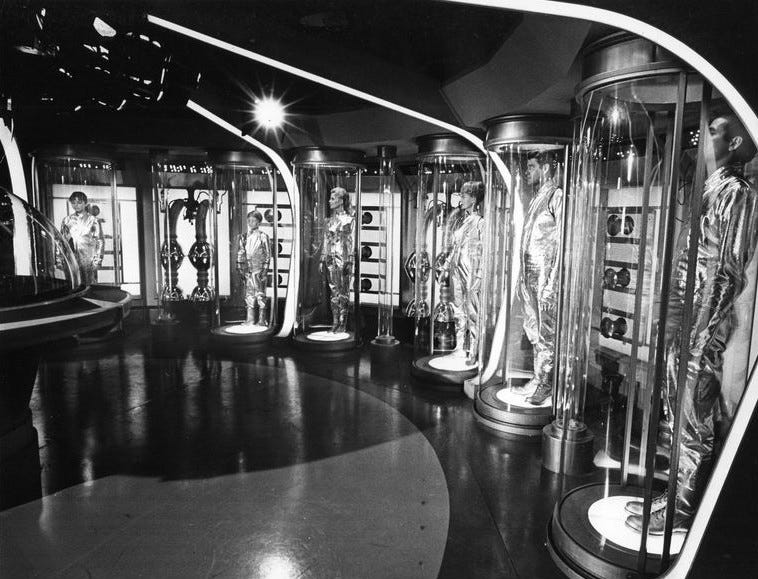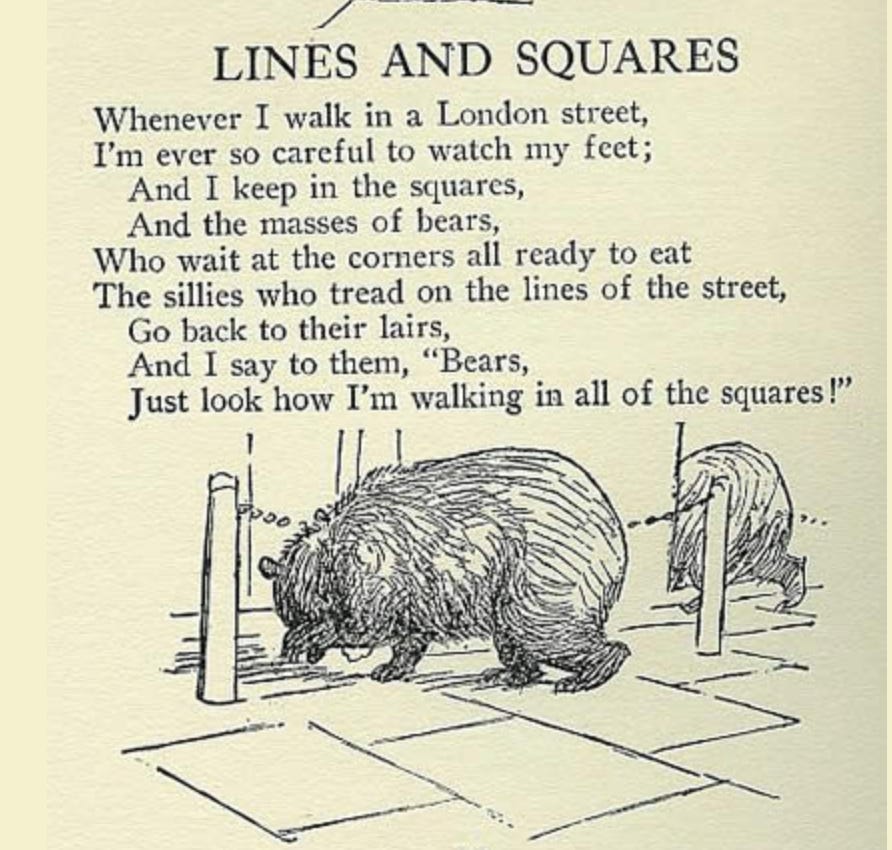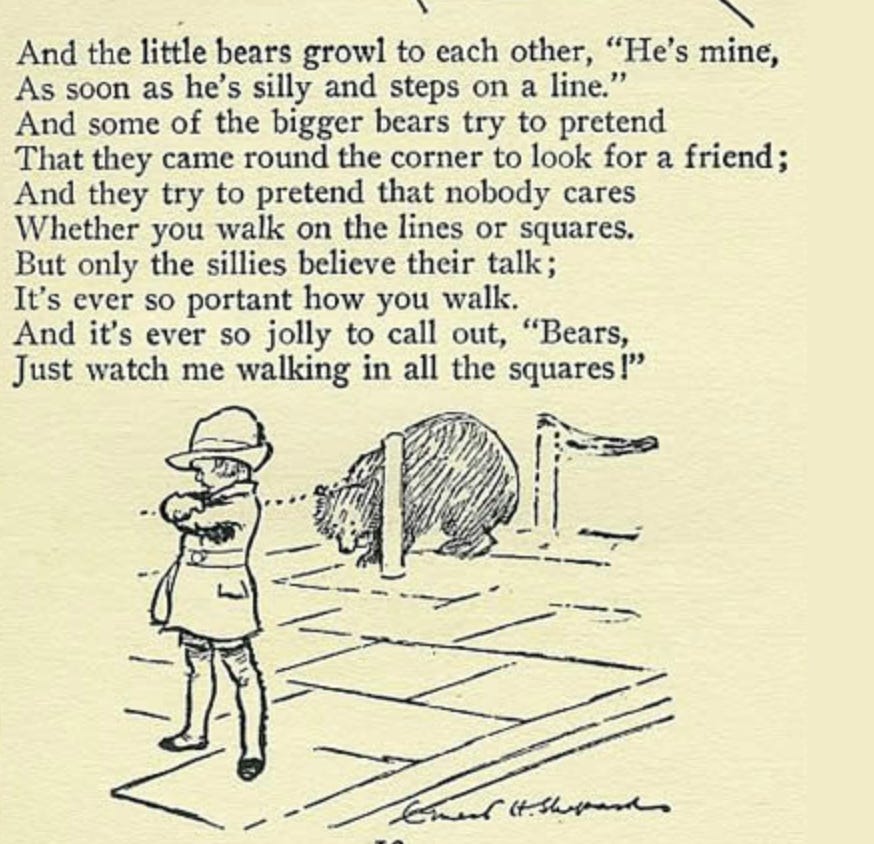What is it called when you struggle with directions?
I didn’t even know there was a word for this ‘neurological condition.’ A long lovely wordy mouthful: developmental topographical disorientation (DTD). It also comes under the terms: spatial or geographic dyslexia.
“While very real and very frustrating for those affected, the term directional dyslexia is problematic. Those turning right not left out of the elevator have a Dys (difficulty) but not with Lexia (words). A better name for this problem would be something like Dysorienta. Admittedly, dyslexics are notorious for mixing left and right ("no, the other right") so there is some 'comorbidity' there, meaning that problems with direction and words often go together. https://www.dyslexia-reading-well.com/directional-dyslexia.html
Wow!
I often feel ‘lost in space,’ and end up in all sorts of pickles of places. I turn left as directed and end up in a dead end. “Oh for God’s sake, it’s so easy, just turn left!” I re trace my steps, and I still end up in the dead end. I often have to check my hands for right and left and even then get lost! If I am given a map my entire body shakes. Literally.
I am so, oh so envious of people who can follow a Google map. Someone told me today that to pass your driving test you have to use your Satnav. The horror of it!

My friend Isa in China spoke not one word of Mandarin: how she managed to live so well still confuses me, and could get into a Didi car (Uber) and navigate the driver all around Qingdao effortlessly using her Google map.
Here is the same map Isa used. I see a grid and go the middle of the map where there is a shopping trolley and Carrefour the French supermarket. From here everything is visual and how I navigaged around Qingdao. Past Pull-Rice Road, down to Bubbling 8 Wells where the hot potato stall seller plays a flute. Is this why he is always busy? Then across the grass where hundreds of magpies gather and sing, to the cafe on the corner by the Zhanshan Temple which plays 1930s music.
永度春宵 (Yǒng dù chūnxiāo) by 雲雲 (Yun Yun) Notes for this music: Publication date ~1940 Topics 78rpm, Ethnic Publisher 新月唱片公司 Digitizing Sponsor Kahle/Austin Foundation Contributor Internet Archive Language Chinese
Recently a friend gave me directions to get to her home. It is a short and sturdy walk along Tunbridge Wells Common and Langton Road. ‘Turn right by the large oak tree and the house is first one the left,’ she said.
At my starting point, on the old Pantiles, I played Winnie the Pooh’s Lines and Squares, a favourite. Most children who have grown up in England know this precious sport from childhood.
The Pantiles is absolutely perfect to play this game with. In one long criss-crossed line, where you skip stone slabs and try to miss the cracks. Yet . . . I found myself so absorbed in my game I ended up back at the well wall where I started.
I actually wrote this one down in my notepad. How I got distracted on the Pantiles. This was the beginning of a turning point which was only three months ago. I was curious. Are my bad directions due to being distracted? When one becomes curious things happen, doors open, possibilities occur . . .

Starting out again without playing Lines and Squares, I walked on to the common past prehistoric Rusthall and past my old school where memories of dreaded dreary maths classes suddenly flooded my mind, and how every maths teacher found me impossible to teach. I remember how numbers danced across the page and off it. I could never catch them in time. Nothing made sense, and I tried to tell them, but then, the only help I got was being told I was too difficult to teach. And I became more difficult as it meant I could sit at the back of the class and do nothing.
I never took any exams and left school happily at 15 after being expelled for . . . doing nothing! And went to France to au-pair while all my friends were suffering teachers who couldn’t teach them.
It was only a few years ago, when doing some family admin with my brother Ivan, that he said, “I think you have a mild form of dyscalculia.” I kept mixing up the 8 for a 3 and the 3 for an 8 and 7 easily become a tilted 1.
I shrugged it off, thought no more of it, and never put directions into the equation. In fact, to be really honest, I always felt something was wrong: how come I cannot understand maps, or get a basic Google direction right, and get lost in my own space? Suddenly in the middle of the hall I often have to think of my direction, and the most interesting is finding the house different all the time. This is a very normal occurrence for me. Yet, strangely, I adore astrology which is riddled with numbers and grasp the symbols, which, unlike my maths numbers, do not slide off the page, they whirl and dance on the page with colour.
Back to Langton
I had to phone L four times. By then I felt terrible. I simply did not understand why I could not find her home. It was so, so simple. She patiently repeated the directions over again. She was very sweet about it but I felt smaller than when I had started the walk.
Later that night I decided to look up: “Why do I struggle to read maps?” Here was my answer. (How Do Dyslexia And Dyscalculia Affect Reading Maps?).
It all makes sense.
Sense.
I understand. Understood and will do something with this enlightenment.
I had the chance to tell this new and exciting piece of ‘me’ information to someone the other day. It did not go quite as well as I expected. They were shocked I had been able to teach at a university in China.
I left the meeting feeling rather deflated and wondered if it is worth telling people.
Upon reflection.
Yes!
I own my Dysorienta, this is why I am writing this Substack.
Now I know it, I challenge myself.

I activated the compass on my phone. I spent hours walking around our new apartment orientating each direction, also the best directions to place the bed, the chair, the sofa and so on. I placed notes around the entire floor as if navigating a whole new world for the first time. Actually, yes, this is a whole new world for me.
Then I experimented with a Google map. I had to go from the new home to Springfield Road. The directions: go northeast and take a left at the first junction. You know what, I found it exciting to find northeast on the compass, follow the road along to the junction and take a left. I still had to ask someone on St. John’s Road where Springfield was and that old dread came back; however. I made it with far less fuss than before.
So, for any of you reading this with the same dyslexic, disorientated, and lost in space phenomena, do not give up!
Get a compass,
have fun, and if you get lost,
try again,
and again
and again.
Thank you so much for your support Have a wonderful few weeks.









My disorienta is so bad that people can hardly believe it. As a massage therapist working on parts of the body, I have to remind myself when someone changes the side they are lying on that now "their bad leg is on the other side." When I leave a store I am totally confused about which direction I was walking in. I even get confused about whether street numbers on houses are going up or down. But I have learned over the years that getting lost is just fine. In fact, its how I get to know a city.
Many thanks for your comment, I am so glad I am not the only person who deals with these dilemmas. I too was a massage therapist for years, my hands made up for me legs and head going the wrong way.